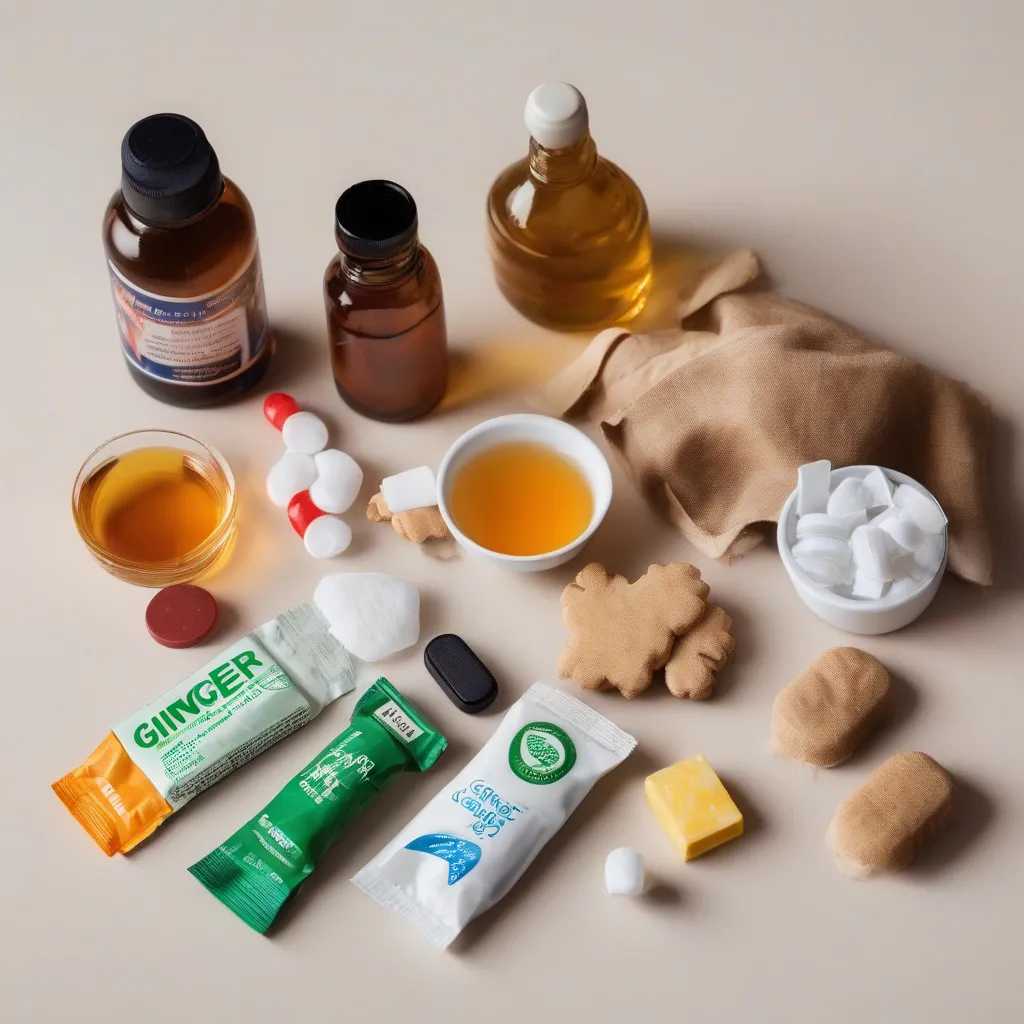Have you ever been excited for a trip, only to be struck down by motion sickness? That wave of nausea hitting you just as you’re admiring the scenic route can really put a damper on your travel plans. But don’t worry, travel sickness, or motion sickness as it’s also known, is a common ailment and there are many ways to prevent and alleviate it.
Understanding Travel Sickness
Before we dive into the solutions, let’s understand why travel sickness occurs. It’s essentially a mismatch of sensory information. Your inner ear, responsible for balance, senses movement, but your eyes, focused on a stationary object like a book or phone, tell your brain you’re still. This conflicting information leads to feelings of nausea, dizziness, and even vomiting.
Practical Tips to Combat Travel Sickness
1. Choose the Right Seat
Location is key when it comes to minimizing motion.
- In a car: Opt for the front passenger seat where you have a clear view of the road.
- On a plane: Select a window seat over the wing, where the motion is less pronounced.
- On a boat: Position yourself on the upper deck, towards the middle, for a smoother ride.
2. Control Your Sensory Input
- Fix your gaze on the horizon or a distant, stationary object. This helps align your visual cues with the motion your body feels.
- Close your eyes or take a nap. Sometimes, eliminating visual input altogether can be beneficial.
- Get some fresh air. Open a window in the car or step out on deck for a breath of fresh air.
3. Dietary Do’s and Don’ts
- Eat light before and during travel. A heavy meal can exacerbate nausea. Stick to bland foods like crackers or bread.
- Stay hydrated. Dehydration can worsen symptoms, so sip on water or clear fluids.
- Avoid alcohol and caffeine. These substances can dehydrate you and disrupt your inner ear’s balance system.
4. Consider Natural Remedies
- Ginger: A well-known remedy for nausea, ginger can be consumed in various forms like ginger ale, candies, or capsules.
- Peppermint: The menthol in peppermint can help settle an upset stomach. Carry peppermint gum or candies with you.
- Acupressure: Wristbands that apply pressure to the P6 acupressure point are believed to relieve nausea.
5. Over-the-Counter and Prescription Medications
- Antihistamines: Over-the-counter medications like dimenhydrinate (Dramamine) or meclizine (Bonine) can be effective in preventing motion sickness. Take them about an hour before you travel.
- Scopolamine: For more severe cases, your doctor might prescribe a scopolamine patch, which is worn behind the ear.
Remember to consult with your doctor before taking any new medications, especially if you have pre-existing health conditions.
 Travel Sickness Remedies
Travel Sickness Remedies
Planning Ahead: Pre-Travel Tips
Sometimes, the best offense is a good defense. Here are some things you can do before your journey to minimize the chances of getting travel sick:
- Get enough sleep. Being well-rested can make a difference in how your body copes with motion.
- Avoid reading or using electronic devices in moving vehicles. This can exacerbate the sensory mismatch that causes motion sickness.
- Gradually acclimate yourself to the mode of transportation. If you’re prone to seasickness, for instance, consider taking shorter boat trips in the days leading up to a longer cruise.
Travel Sickness in Children
Children, especially between the ages of 2 and 12, are more susceptible to motion sickness. Here are some additional tips for keeping little travelers comfortable:
- Choose direct routes and schedules that minimize travel time.
- Pack distractions like books, games, or small toys.
- Make frequent stops for fresh air and breaks.
Travel Sickness: FAQs
1. Can I prevent travel sickness entirely?
While there’s no foolproof way to prevent it entirely, following the tips outlined above can significantly reduce your chances of experiencing motion sickness.
2. What should I do if I start feeling sick while traveling?
Try the immediate remedies like getting fresh air, fixing your gaze on a distant object, or using peppermint. If symptoms persist, it’s best to stop and rest until you feel better.
3. Is travel sickness related to anxiety?
While anxiety itself doesn’t cause motion sickness, it can exacerbate symptoms. If you’re prone to both, managing your anxiety through relaxation techniques like deep breathing can be helpful.
 Happy Family Traveling
Happy Family Traveling
Enjoy the Journey
Travel should be an enjoyable experience. By understanding the causes of travel sickness and implementing these practical tips, you can minimize discomfort and embrace the adventure that awaits. Remember, a little preparation and self-care can go a long way in ensuring a smooth and memorable journey.
For more travel tips and resources, be sure to explore other informative articles on TRAVELCAR.edu.vn. We’re here to help you navigate the world comfortably and confidently.

